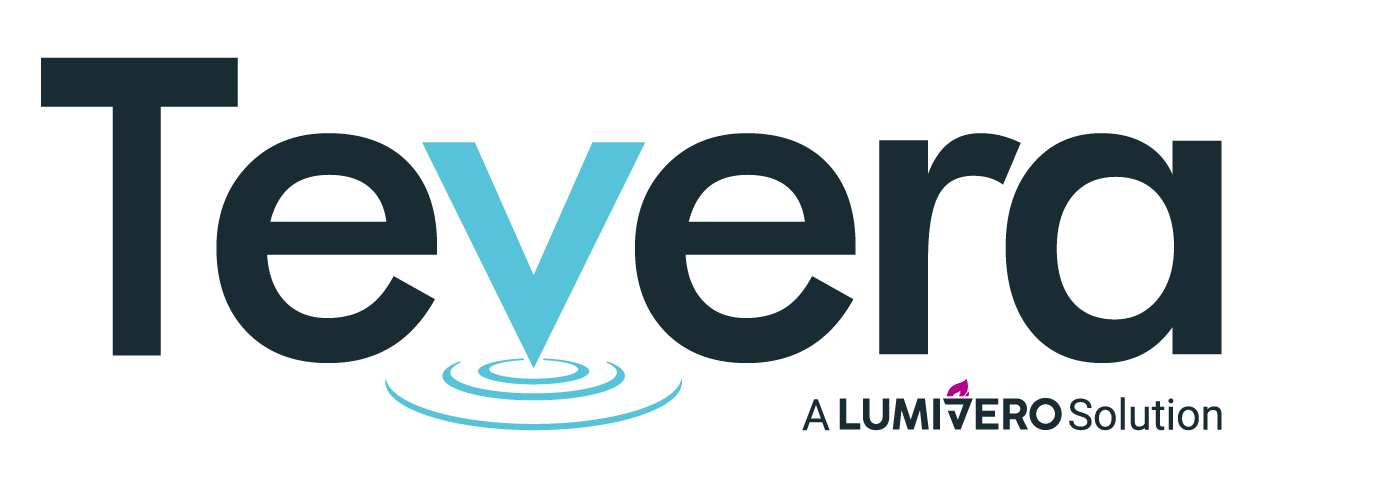When it comes to career building, so many things have evolved and changed, from online job boards and one-click applications to virtual networking. But one thing has not changed: the importance of a resume. No matter where you are in your career, a resume is a requirement and is usually the first impression an employer has of who you are and what you can offer professionally.
Writing and updating your resume is an ongoing project, not something you can churn out in an hour and check off your to-do list. Don’t agonize about it, but mentally prepare yourself that it will take work. So, grab a cup of coffee, and get prepared to build your professional identity.
Whether you are a recent graduate building your resume or you are looking to revamp your current resume, here are some general tips you should consider:
7 Key Resume Tips
Tip 1 Find Examples
Before you dive into writing bullet points, take some time to find examples of resumes in your field. You could ask mentors, colleagues, or fellow students to share their resumes, or do a simple Google search to see what others in your field are submitting. This also offers you the chance to see what you like and don’t like, as well as what is effective to a reader.
Tip 2 Format
As you look at examples you will notice different formats and while it may be easy to get overwhelmed with finding the perfect design, remember that it needs to be clean, simple, and easy to read. You could build your resume on a word processor like Microsoft Word or use resume builders like Novoresume to help format your document. Remember, when you share your resume, be sure to share as a PDF because a word processing file can mess up your formatting on different machines.
Tip 3 Write a Summary or Career Objective
Your contact information should be clear, accurate, and easy to find. After that, the first thing you should include is a career summary or objective, one to two sentences introducing yourself and summarizing what you have accomplished or where you are hoping to go with your career.
This is the very first thing a hiring manager or employer will read, meaning you have only a few seconds to convince the reader to continue reading your resume. If you’re a recent graduate, a career objective should articulate your motivation for why you want to build a career in a particular field.
Tip 4 It’s in the Details
Moving into relevant work experience, this is where you can elaborate on your summary with details. First, get specific. Using general language of what you did is fine, but providing specificity with numbers and details—without getting bogged down—helps your reader get a clear picture of your experience.
Focus on your accomplishments over responsibilities. Employers want to know how you made an impact in your workplace, not that you simply did what you were instructed.
Tip 5 Put Yourself in the Mind of the Reader
One of the challenges of writing a resume is being able to objectively separate yourself in order to edit and evaluate what you’ve written. It can be difficult to avoid bias and strong attachments to certain elements or stories while reading your own work.
One way to work on your resume is stepping away after you’ve worked on it, and then return to it with the mindset of your reader, whether that is a hiring manager, prospective employer, or mentor.
What picture is this candidate (you) painting of their career? Does it sound like someone I would want to hire?
Tip 6 Get Another Set of Eyes
One of the best things you can do for your resume is get it in front of someone else. Having someone else’s eyes on it to proofread for errors or mistakes is so important. Even editors need editors on their writing. You should also ask for feedback in how the resume communicates your goals; the more specific questions you ask of your reviewer, the more productive feedback you will receive.
Tip 7 Plan to Write Many Resumes
You need to build your ultimate foundational resume that can be used in various contexts, ready to be shared with your contacts, distributed at a networking event, or posted on a profile (like Tevera Pro). But when you come across a position you’re interested in, plan to tweak and make a new version of that foundational resume that speaks to the position you’re applying for, honing in on specific job description language and using it directly in your resume.
You need to be intentional about the language you use. Show the reader that you fully understand the job description by reflecting it through your resume. You can also pay attention to specific keywords used in the job description or by the company. This shows your attention to detail and the fact that you spent time considering the position and qualifications.
BONUS
5 Specific Resume Tips for Jobs in the Helping Professions
Writing a resume is one thing, but understanding the nuances of your field in writing a resume is also important. For those in the helping professions such as social work, counseling, psychotherapy, or therapy, here are a few tips to consider:
Tip 1 Keywords
Within any field, there are skills, keywords, and specific language that you will see in job descriptions. Compile a list of keywords, phrases, verbs, and tasks that you come across in your job search within the helping professions; incorporating language used in the field will bolster your resume.
This also includes any specialties you are experienced in or into which you are hoping to move.
Tip 2 Skills and Specialties
List your soft, hard, and technical skills. This is particularly relevant to the helping professions because practitioners need a mix of soft and hard skills in their everyday work. Clearly listing these in your resume will concisely communicate the skills you possess and will help employers get a sense of what you can offer.
Working in the helping professions, your work can also happen in many different types of settings; be sure to articulate the different places and environments you’ve worked, interned, or for which you’ve volunteered.
Tip 3 Education and Licensure
The reality of working in the helping professions is that licensure, certifications, and education are important. Make it easy on your reader by presenting education and licensing information clearly.
Tip 4 Don’t Assume
Don’t assume your reader knows everything you do in your field; hiring managers are often human resources professionals, not fellow colleagues in your field. Using field-specific acronyms is fine, as long as you spell them out so your reader is in the know.
Tip 5 Don’t Neglect It
When we land that first job, it’s such a great feeling and it may be easy to get swept up in working. Suddenly you are two years into the job, you haven’t touched your resume, and the idea of writing a list of everything you’ve done for the last two years seems daunting. Whether you’re looking for a new job or not, check in with your resume periodically and make sure it still reflects you and your experience. Set a reminder every couple of months to take a look.
Another thing your future self will thank you for is maintaining a record of accomplishments and projects at your different jobs; you could even save all of your to-do lists as an active way of documenting what you’ve been working on. You can pull out this list when an annual review comes around or you are searching for new positions and need to update your resume or speak specifically to your past experiences during interviews.
SOLUTIONS
RELATED POSTS
PRODUCT OVERVIEW
See how Tevera can elevate your program.
When it comes to career building, so many things have evolved and changed, from online job boards and one-click applications to virtual networking. But one thing has not changed: the importance of a resume. No matter where you are in your career, a resume is a requirement and is usually the first impression an employer has of who you are and what you can offer professionally.
Writing and updating your resume is an ongoing project, not something you can churn out in an hour and check off your to-do list. Don’t agonize about it, but mentally prepare yourself that it will take work. So, grab a cup of coffee, and get prepared to build your professional identity.
Whether you are a recent graduate building your resume or you are looking to revamp your current resume, here are some general tips you should consider:
7 Key Resume Tips
Tip 1 Find Examples
Before you dive into writing bullet points, take some time to find examples of resumes in your field. You could ask mentors, colleagues, or fellow students to share their resumes, or do a simple Google search to see what others in your field are submitting. This also offers you the chance to see what you like and don’t like, as well as what is effective to a reader.
Tip 2 Format
As you look at examples you will notice different formats and while it may be easy to get overwhelmed with finding the perfect design, remember that it needs to be clean, simple, and easy to read. You could build your resume on a word processor like Microsoft Word or use resume builders like Novoresume to help format your document. Remember, when you share your resume, be sure to share as a PDF because a word processing file can mess up your formatting on different machines.
Tip 3 Write a Summary or Career Objective
Your contact information should be clear, accurate, and easy to find. After that, the first thing you should include is a career summary or objective, one to two sentences introducing yourself and summarizing what you have accomplished or where you are hoping to go with your career.
This is the very first thing a hiring manager or employer will read, meaning you have only a few seconds to convince the reader to continue reading your resume. If you’re a recent graduate, a career objective should articulate your motivation for why you want to build a career in a particular field.
Tip 4 It’s in the Details
Moving into relevant work experience, this is where you can elaborate on your summary with details. First, get specific. Using general language of what you did is fine, but providing specificity with numbers and details—without getting bogged down—helps your reader get a clear picture of your experience.
Focus on your accomplishments over responsibilities. Employers want to know how you made an impact in your workplace, not that you simply did what you were instructed.
Tip 5 Put Yourself in the Mind of the Reader
One of the challenges of writing a resume is being able to objectively separate yourself in order to edit and evaluate what you’ve written. It can be difficult to avoid bias and strong attachments to certain elements or stories while reading your own work.
One way to work on your resume is stepping away after you’ve worked on it, and then return to it with the mindset of your reader, whether that is a hiring manager, prospective employer, or mentor.
What picture is this candidate (you) painting of their career? Does it sound like someone I would want to hire?
Tip 6 Get Another Set of Eyes
One of the best things you can do for your resume is get it in front of someone else. Having someone else’s eyes on it to proofread for errors or mistakes is so important. Even editors need editors on their writing. You should also ask for feedback in how the resume communicates your goals; the more specific questions you ask of your reviewer, the more productive feedback you will receive.
Tip 7 Plan to Write Many Resumes
You need to build your ultimate foundational resume that can be used in various contexts, ready to be shared with your contacts, distributed at a networking event, or posted on a profile (like Tevera Pro). But when you come across a position you’re interested in, plan to tweak and make a new version of that foundational resume that speaks to the position you’re applying for, honing in on specific job description language and using it directly in your resume.
You need to be intentional about the language you use. Show the reader that you fully understand the job description by reflecting it through your resume. You can also pay attention to specific keywords used in the job description or by the company. This shows your attention to detail and the fact that you spent time considering the position and qualifications.
BONUS
5 Specific Resume Tips for Jobs in the Helping Professions
Writing a resume is one thing, but understanding the nuances of your field in writing a resume is also important. For those in the helping professions such as social work, counseling, psychotherapy, or therapy, here are a few tips to consider:
Tip 1 Keywords
Within any field, there are skills, keywords, and specific language that you will see in job descriptions. Compile a list of keywords, phrases, verbs, and tasks that you come across in your job search within the helping professions; incorporating language used in the field will bolster your resume.
This also includes any specialties you are experienced in or into which you are hoping to move.
Tip 2 Skills and Specialties
List your soft, hard, and technical skills. This is particularly relevant to the helping professions because practitioners need a mix of soft and hard skills in their everyday work. Clearly listing these in your resume will concisely communicate the skills you possess and will help employers get a sense of what you can offer.
Working in the helping professions, your work can also happen in many different types of settings; be sure to articulate the different places and environments you’ve worked, interned, or for which you’ve volunteered.
Tip 3 Education and Licensure
The reality of working in the helping professions is that licensure, certifications, and education are important. Make it easy on your reader by presenting education and licensing information clearly.
Tip 4 Don’t Assume
Don’t assume your reader knows everything you do in your field; hiring managers are often human resources professionals, not fellow colleagues in your field. Using field-specific acronyms is fine, as long as you spell them out so your reader is in the know.
Tip 5 Don’t Neglect It
When we land that first job, it’s such a great feeling and it may be easy to get swept up in working. Suddenly you are two years into the job, you haven’t touched your resume, and the idea of writing a list of everything you’ve done for the last two years seems daunting. Whether you’re looking for a new job or not, check in with your resume periodically and make sure it still reflects you and your experience. Set a reminder every couple of months to take a look.
Another thing your future self will thank you for is maintaining a record of accomplishments and projects at your different jobs; you could even save all of your to-do lists as an active way of documenting what you’ve been working on. You can pull out this list when an annual review comes around or you are searching for new positions and need to update your resume or speak specifically to your past experiences during interviews.
When it comes to career building, so many things have evolved and changed, from online job boards and one-click applications to virtual networking. But one thing has not changed: the importance of a resume. No matter where you are in your career, a resume is a requirement and is usually the first impression an employer has of who you are and what you can offer professionally.
Writing and updating your resume is an ongoing project, not something you can churn out in an hour and check off your to-do list. Don’t agonize about it, but mentally prepare yourself that it will take work. So, grab a cup of coffee, and get prepared to build your professional identity.
Whether you are a recent graduate building your resume or you are looking to revamp your current resume, here are some general tips you should consider:
7 Key Resume Tips
Tip 1 Find Examples
Before you dive into writing bullet points, take some time to find examples of resumes in your field. You could ask mentors, colleagues, or fellow students to share their resumes, or do a simple Google search to see what others in your field are submitting. This also offers you the chance to see what you like and don’t like, as well as what is effective to a reader.
Tip 2 Format
As you look at examples you will notice different formats and while it may be easy to get overwhelmed with finding the perfect design, remember that it needs to be clean, simple, and easy to read. You could build your resume on a word processor like Microsoft Word or use resume builders like Novoresume to help format your document. Remember, when you share your resume, be sure to share as a PDF because a word processing file can mess up your formatting on different machines.
Tip 3 Write a Summary or Career Objective
Your contact information should be clear, accurate, and easy to find. After that, the first thing you should include is a career summary or objective, one to two sentences introducing yourself and summarizing what you have accomplished or where you are hoping to go with your career.
This is the very first thing a hiring manager or employer will read, meaning you have only a few seconds to convince the reader to continue reading your resume. If you’re a recent graduate, a career objective should articulate your motivation for why you want to build a career in a particular field.
Tip 4 It’s in the Details
Moving into relevant work experience, this is where you can elaborate on your summary with details. First, get specific. Using general language of what you did is fine, but providing specificity with numbers and details—without getting bogged down—helps your reader get a clear picture of your experience.
Focus on your accomplishments over responsibilities. Employers want to know how you made an impact in your workplace, not that you simply did what you were instructed.
Tip 5 Put Yourself in the Mind of the Reader
One of the challenges of writing a resume is being able to objectively separate yourself in order to edit and evaluate what you’ve written. It can be difficult to avoid bias and strong attachments to certain elements or stories while reading your own work.
One way to work on your resume is stepping away after you’ve worked on it, and then return to it with the mindset of your reader, whether that is a hiring manager, prospective employer, or mentor.
What picture is this candidate (you) painting of their career? Does it sound like someone I would want to hire?
Tip 6 Get Another Set of Eyes
One of the best things you can do for your resume is get it in front of someone else. Having someone else’s eyes on it to proofread for errors or mistakes is so important. Even editors need editors on their writing. You should also ask for feedback in how the resume communicates your goals; the more specific questions you ask of your reviewer, the more productive feedback you will receive.
Tip 7 Plan to Write Many Resumes
You need to build your ultimate foundational resume that can be used in various contexts, ready to be shared with your contacts, distributed at a networking event, or posted on a profile (like Tevera Pro). But when you come across a position you’re interested in, plan to tweak and make a new version of that foundational resume that speaks to the position you’re applying for, honing in on specific job description language and using it directly in your resume.
You need to be intentional about the language you use. Show the reader that you fully understand the job description by reflecting it through your resume. You can also pay attention to specific keywords used in the job description or by the company. This shows your attention to detail and the fact that you spent time considering the position and qualifications.
BONUS
5 Specific Resume Tips for Jobs in the Helping Professions
Writing a resume is one thing, but understanding the nuances of your field in writing a resume is also important. For those in the helping professions such as social work, counseling, psychotherapy, or therapy, here are a few tips to consider:
Tip 1 Keywords
Within any field, there are skills, keywords, and specific language that you will see in job descriptions. Compile a list of keywords, phrases, verbs, and tasks that you come across in your job search within the helping professions; incorporating language used in the field will bolster your resume.
This also includes any specialties you are experienced in or into which you are hoping to move.
Tip 2 Skills and Specialties
List your soft, hard, and technical skills. This is particularly relevant to the helping professions because practitioners need a mix of soft and hard skills in their everyday work. Clearly listing these in your resume will concisely communicate the skills you possess and will help employers get a sense of what you can offer.
Working in the helping professions, your work can also happen in many different types of settings; be sure to articulate the different places and environments you’ve worked, interned, or for which you’ve volunteered.
Tip 3 Education and Licensure
The reality of working in the helping professions is that licensure, certifications, and education are important. Make it easy on your reader by presenting education and licensing information clearly.
Tip 4 Don’t Assume
Don’t assume your reader knows everything you do in your field; hiring managers are often human resources professionals, not fellow colleagues in your field. Using field-specific acronyms is fine, as long as you spell them out so your reader is in the know.
Tip 5 Don’t Neglect It
When we land that first job, it’s such a great feeling and it may be easy to get swept up in working. Suddenly you are two years into the job, you haven’t touched your resume, and the idea of writing a list of everything you’ve done for the last two years seems daunting. Whether you’re looking for a new job or not, check in with your resume periodically and make sure it still reflects you and your experience. Set a reminder every couple of months to take a look.
Another thing your future self will thank you for is maintaining a record of accomplishments and projects at your different jobs; you could even save all of your to-do lists as an active way of documenting what you’ve been working on. You can pull out this list when an annual review comes around or you are searching for new positions and need to update your resume or speak specifically to your past experiences during interviews.





















